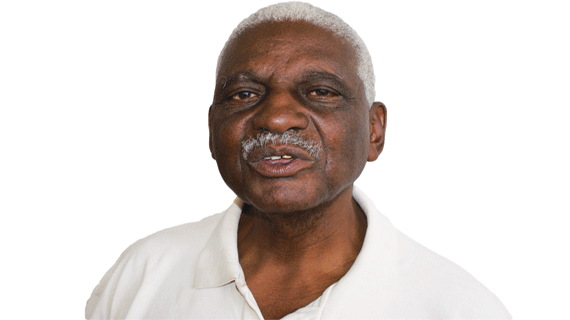
SO far this topic has been concentrating on children and young people, how they should respect elder people and indeed each other.
This, however, should not imply that ukuhlonipha is a vertical quality. It is equally horizontal in the sense that they should respect each other.
As a form of respect the children were taught to share, to help and to care for others and to consider themselves not more important than others, to respect and care for other’s property.
There were taught to have good regard for other children and to respect their wishes and their views. A child who deceived others, who cheated them, who told them lies or who fought them did not show respect. Kabahloniphi ontanga yakhe.
The above remarks are true of adults towards each other. Some women will easily gossip about other women and, as we know, gossip is a mixture of truths, half-truths and blatant untruths. The individual who is gossiped about loses respect from others as a result.
Abanye sebemkhangela bathi ha !kanti unje ? Ungahambi ucevuza ngabanye abafazi ubalulaza; ungabi nguthathawese ohamba ecela amatiye ngabanye.
Similarly some men “have no chest” kabalasifuba. They divulge any and all information (secret) about themselves and their neighbours: Yeyi, izolo sikesalala yini? Umakhelwana wami ubesebulala umkakhe, sayalamula. Uthi kubangwani? Hayi , ngiyekela mina, izinto lezi kazikhulunywa. Bekungaba yini kambe lawe umazi uMaMthombeni ukuthi ulamehlomehlo? To a man of this kind in Ndebele we say “he has no chest” or “his chest is leaking,” or even, “his chest was kicked by a Zebra”. You have to be a Ndebele to understand the meaning of these translations.
It is believed that the chest is the big box that harbours all the secrets. If a man cannot keep secrets he figuratively has no chest or his chest is leaking or it was kicked open by a Zebra. The point is that such a man does not hlonipha other people’s affairs.
- Chamisa under fire over US$120K donation
- Mavhunga puts DeMbare into Chibuku quarterfinals
- Pension funds bet on Cabora Bassa oilfields
- Councils defy govt fire tender directive
Keep Reading
You hlonipha another person and you treat them with respect. You say “thank you” for all the good things that they do to you. You don’t just take and use their property without their permission. If you break his bicycle go and explain and say you are sorry. To say sorry does not take away anything from you; instead it adds value to your worth. Don’t say: Ngingamthobela ngizamjayeza. No, you bring respect to yourself. Just think: Ngonjani umuntu ohloniphekayo? In essence it is not someone with a big position. It is someone who is humble and respectful. Respect begets respect.
It has already been said that Ndebele people call each other by isibongo (surname is misleading because Malunjwa Ncube may be known as Malunjwa Masalethulini, or as I have heard Saziso Mathobela at school was Saziso Mkhindinkomoyenkosi).
You say to another man: Siziba, akuze ngapha, baba. Ake uhambise ixaba leli kuNyandeni. Or, you call a man by the name of his firstborn child by prefixing Seka-: SekaMgodla, SekaNomaqhinga. As for women the beauty of Ndebele culture is that they never take their husband’s surname or to put it differently they never lose their family surname. You hlonipha them by: UMaZondo, uMaDonga , uMaNtuli, or with the prefix Naka-: NakaLomchilo, NakaMzondwase, NakaDalumuzi. I always wonder why the protagonists of women’s rights do not pick on this one and fight for it vigorously. Or are they so enamoured of their male spouses that they want to maintain their own (women) identity through them (men).
That now brings us to the respect between husband and wife. The husband is the head of the family and so he deserves the respect of every member of the family. He runs the home and he must assert his authority or else zisemahlangeni; ngumhlambi kazalusile. His wife (or wives) is the second in command and must fulfil that role. Some women become more assertive and assume more authority than the husband – indoda idonswa ngama . . . ngamakhala. Kuthiwa yadliswa. The man as the head of the family makes all major decisions.
The wife may suggest or request but the husband has the final say. Indoda itshaya umthetho and the wife must hlonipha his authority.
This is the normal Ndebele situation and there is nothing autocratic about it. The man calls the wife, “MaNxumalo-o-o!” and she responds, “Ba-a-ba!” “Woza lapha,” and she goes to him without further delay. In olden days she came and knelt before him. Women’s respect for husband was hardly different among the Ndebele from Sarah’s respect for Abraham of the Bible. Whereas the husband would call the wife to “ woza lapha” the wife could never ever do such a thing.
The operative word for a woman who respected her husband (umfazi ohloniphayo owalaywayo esuka kwabo) is “ngicela”- umfazi uyacela endodeni imvumele nxa ibona kulungile . The man does not “cela” because he is a man.
All this should not imply that a woman (wife) does not have any respect from her husband. Far from it. She makes her requests, expresses her wishes, gives her opinion even on some grave affair and may give some advice. A good husband (and there are many) respects his wife enough and will act upon those expressions.
In the home the wife has certain rights which a husband must respect. Mostly these are related to domestic administration like the kitchen, control of food in all its forms, bringing up the children and the ownership of various items in the home. In a polygamous home the head wife has the respect of onyanewabo whom she may assign duties.
A good man will always consult his wife before he takes major decisions.










